'My mum killed my dad with a hammer but I want her freed'
- Published
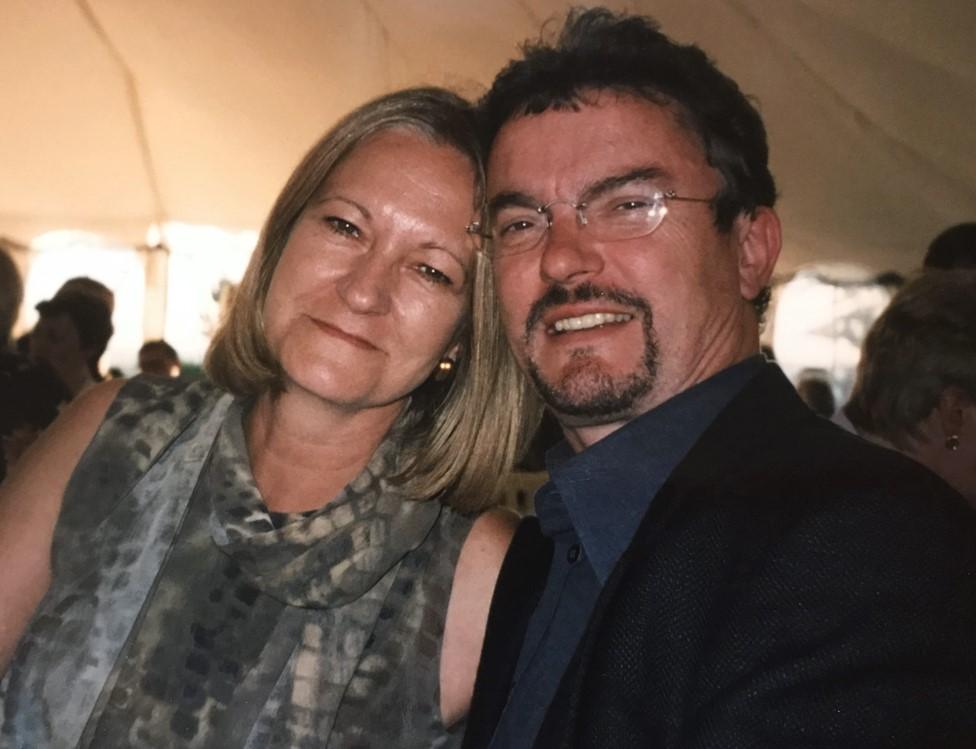
Sally Challen and Richard Challen during their 31-year marriage

Sally Challen was jailed for the murder of her husband in 2011 but her solicitors believe a new law, recognising psychological manipulation as a form of domestic abuse, could be a defence in an appeal hearing next month. Her son David explains why he's backing the appeal and hopes to see his mother freed.
Sally's last words to David were supposed to be heartfelt but undramatic. "You know I love you, don't you?" she said, fixing his gaze through an open car door, as she dropped him off at work.
A day earlier, she had killed her long-time husband, and father of David, in a frenzied hammer attack. But as he headed to his job, David knew nothing of Richard Challen's gruesome death.
After that drop-off, she had planned to swiftly end her own life - jumping from the top floor of a nearby car park. When she realised the car park was closed, she pressed on regardless, driving to Beachy Head in East Sussex. There she planned to jump to her death off the chalky precipice.
From the clifftop, Sally called her cousin to admit the killing. She repeated the admission to a suicide team and a chaplain, who had been called to help her.
It took them two hours to talk her down from the edge.
She was charged with her husband's murder, convicted and jailed for life.
However, eight years on, lawyers acting for Sally Challen are hoping to make legal history, and David is working to help them. They hope to use a law passed in 2015, which recognises psychological manipulation, or coercive control, as a form of domestic abuse, to secure her release.
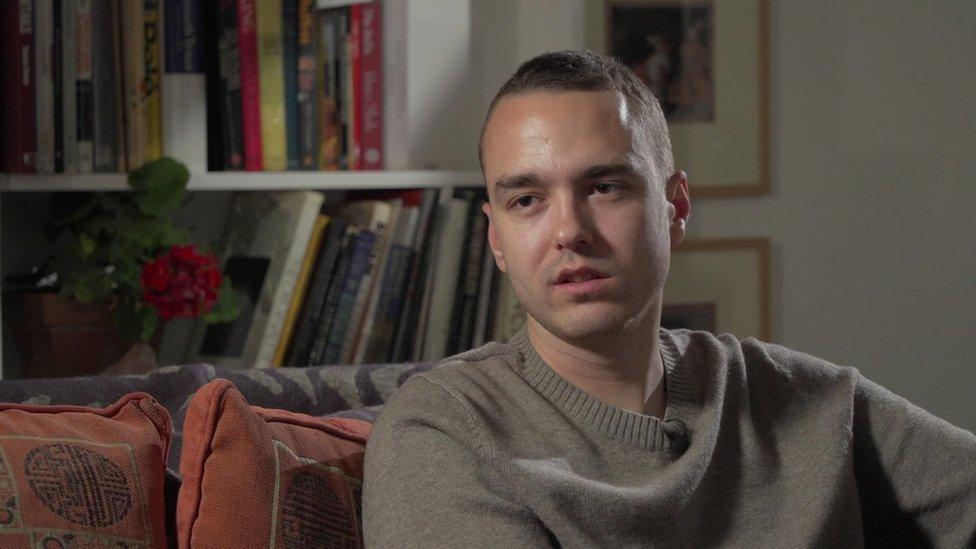
David Challen says his mother suffered years of abuse at the hands of his father
Just as physical violence in a relationship has been recognised as a mitigating factor in a killing, her lawyers say her history of psychological abuse by Richard provides a defence of provocation.
The circumstances around the killing itself give a taste of the sort of coercive control Richard exerted over his wife.
In the wealthy suburban village of Claygate, Surrey, one wet Saturday morning in August 2010, Sally visited the house she had, until recently, shared with Richard, her husband of 31 years.
He lived there alone since she had walked out on the relationship the previous November, after discovering he had been visiting prostitutes.
David and his elder brother James, who prefers to avoid media attention, say their father inflicted years of psychological abuse on their mother. Having left Richard, the sons were adamant their mother should stay away from him.
However, unknown to them, she had secretly begun seeing Richard again, hoping to patch up their marriage.
What actually happened in the family home that morning was far removed from reconciliation.
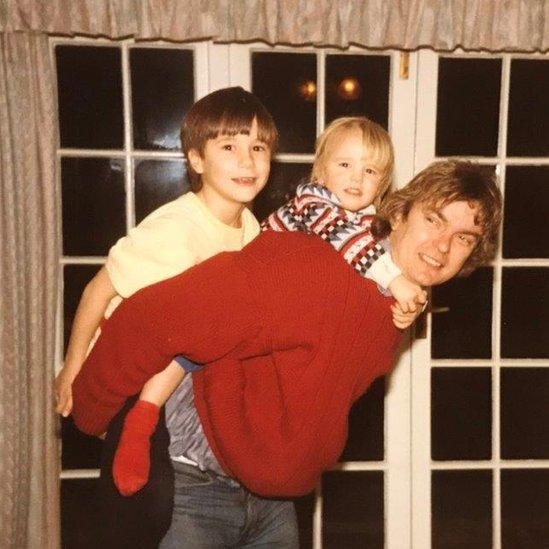
Richard Challen was, outwardly, a loving family man

On this particular morning, she drove the short distance from her new home. In the car with her was a handbag and, stashed inside it, a hammer.
Richard had wanted her to approve a post-nuptial agreement that would cut her rights to the £1m family home and impose stringent conditions, such as not interrupting him and not talking to other people when they were together in restaurants.
There was no food in the house and Richard was hungry, so he asked her to go out and buy something for his lunch.
As she headed back from the shops, Sally suspected Richard had had an ulterior motive for getting her out of the house. So, on her return she picked up his phone, rang the last number he had dialled and found it answered by a woman.
In the family kitchen, Sally fried bacon and eggs on the hob. Richard sat with his back to her at the table.
Counting Viagra pills
She served him, and, as he ate, she pulled the hammer from her bag and hit Richard 20 times over the head.
She then wrapped his body in curtains and blankets, left a note saying: "I love you, Sally," and left.
She bought herself some cigarettes, drank some wine and composed a suicide note. But she decided to delay killing herself until she had seen David who, at 23, still lived with her.
The next day, David remembers, his mother dropped him at work and, as he stepped out of the car, she made her heartfelt pledge of love.
Later that day, David was summoned by his manager.
"Then came round the corner, my cousin, followed by a police officer, uniformed, and rushed to me, grabbed me on both shoulders and said, 'your father's dead'."
Charged with her husband's murder, 10 months later Sally stood in the dock of Guildford Crown Court. Her hair was a mess and her fingers stained yellow from smoking. David remembers the proceedings being hard to watch.
"Anyone standing up who had anything worth saying was not saying enough, or not feeling as if they had enough time, or not being asked the right questions. She was being painted as vengeful and jealous."
Here was a woman who counted her husband's Viagra and monitored his phone calls, the prosecution said.
In court, Sally hardly spoke. But there was video evidence in which she admitted to the killing and testimony from the Beachy Head suicide prevention team. They recounted her confessing: "I killed him with a hammer. I hit him lots of times... If I can't have him, no-one can."
Convicted of murder and jailed for life, all hope appeared to have expired for Sally. Then, in 2015, a law came into force that recognised psychological manipulation, or coercive control, as a form of domestic abuse., external
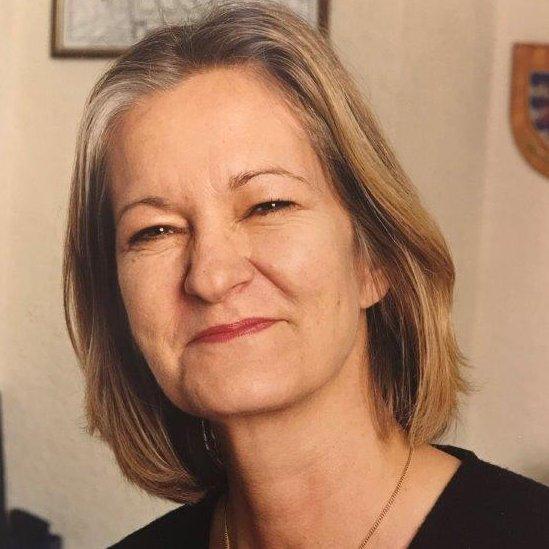

In March 2018, Sally Challen won leave to appeal against her conviction.
Her solicitor, Harriet Wistrich, of the feminist campaigning organisation Justice for Women, says the new law should be accepted as "new evidence" in the case.
"We're arguing, for the first time, that the framework for understanding domestic abuse that's set out in coercive and controlling behaviour which became law in 2015, provides a way of understanding Sally's actions which would support a defence of provocation."
She believes this is the first time coercive control has been used as a defence in a murder appeal: "Our argument is that if this evidence is allowed as fresh evidence it renders the murder conviction unsafe therefore that murder conviction should be quashed."
She says that the appeal court could reduce the conviction to manslaughter or order a retrial.
The fact that the family want to see her freed - and none of Richard's friends or relatives has come forward to say otherwise - is significant, she believes. But she fears the fact Sally brought the hammer with her "with a conditional intent to use it", suggests some premeditation. This could mean the murder conviction will stand, says Ms Wistrich.
Both grown-up sons back the legal challenge, with David clear that his father's treatment of his mother is a textbook example of coercive control.
"It was tick, tick, tick - everything: financial abuse, psychological manipulation, controlling her freedom of movement, just controlling every facet of her mind... It was almost like she was a robot and he punched in the commands of what she had to do."
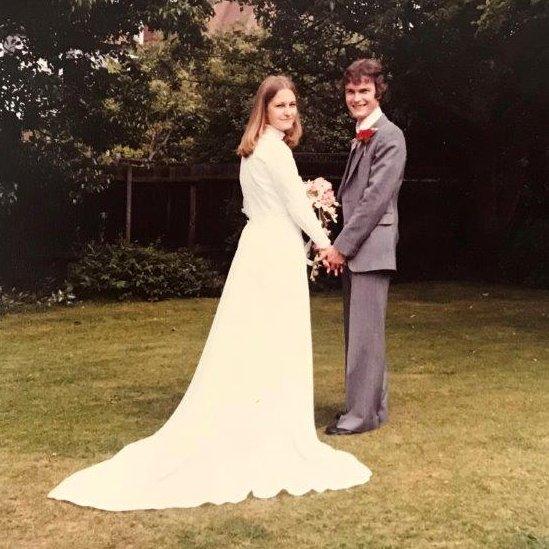
Sally and Richard on their wedding day in 1979

Richard's psychological hold over Sally began early, David believes.
Sally Jenney was 15 when she met Richard, five years her senior, in 1971. They were married in 1979. Sally had nothing but wide-eyed love for Richard, David says, but his father felt otherwise.
"Seeing women, cheating on her, brothels."
And when she challenged him, David remembers his father questioned her sanity: "'Sally, you are mad'. It was a mantra."
There were petty rules. In restaurants she was not allowed to speak to other people.
"He didn't like her having any independence in terms of friends, it was only friends together. It was total control."
Insults about weight
If she displeased him, Richard would restrict her car use to work travel only, and all household spending came out of her earnings. Neighbours have said he treated her as if she belonged to him.
And Sally was subjected to constant criticism.
"My father would refer to my mother as 'saddlebags', 'thunder thighs', really critiques of her weight... and that was something me and my brother witnessed and heard all the time. Not just in our own company but with other friends as well... It was just not right."
At the original trial, it was suggested Sally attacked Richard in a rage, after realising he had called a girlfriend that morning. But David says he believes his mother's claim that she was unaware of her actions when she killed Richard.
"She took that hammer and she killed my father. I recognise what happened but we have to recognise what psychological control does. I don't know why she took that hammer. She doesn't understand why," he says.
David says his mother still loves Richard, something he and his brother "can't understand".
"We don't know what to do with that... my father's not alive any more and he still has power over her."
David says he hopes the appeal "will acknowledge my mother's mental abuse, will acknowledge what she suffered throughout her life".
"The cause is not that she's a jealous wife," he adds. "She has been manipulated psychologically all her life, tied down by this man, my father. She deserves her right to freedom. She deserves for her abuse to be recognised."
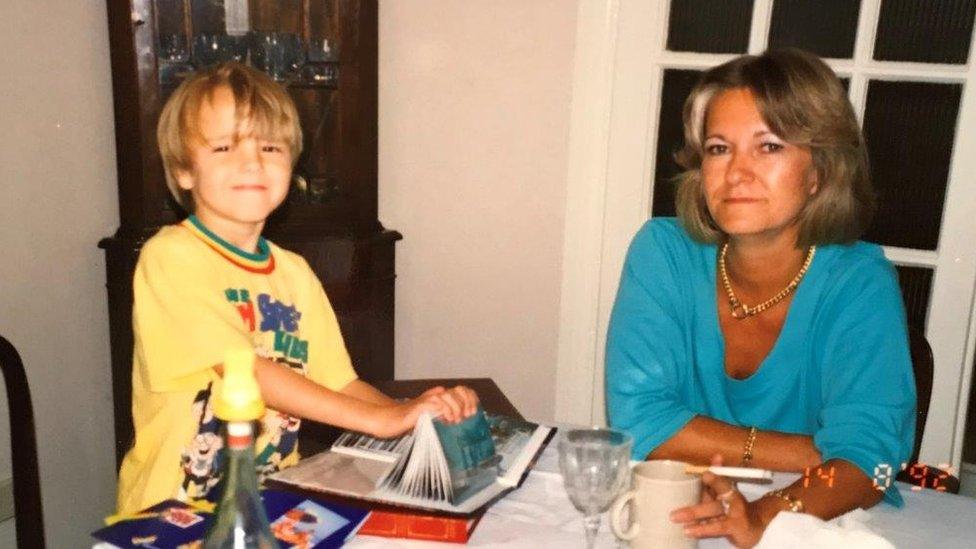
David says the only way to help his mother is to let her be free
Additional reporting by June Kelly and Sally Graham
- Published1 March 2018
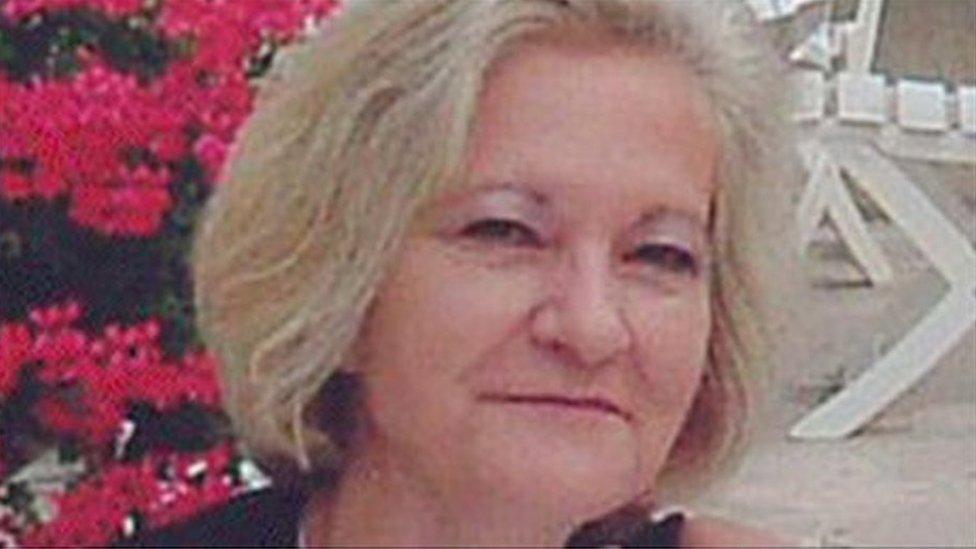
- Published24 November 2011
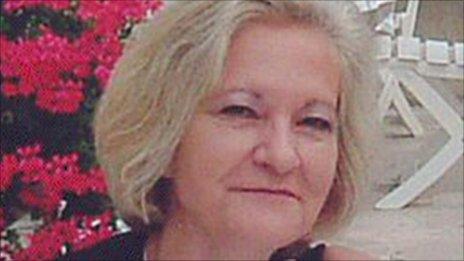
- Published23 June 2011
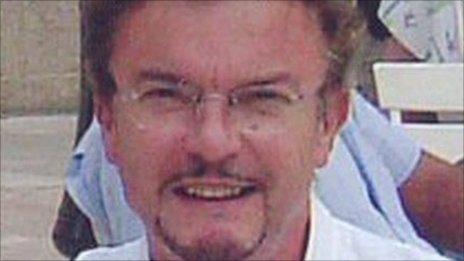
- Published23 June 2011
- Published10 December 2010
- Published29 December 2015
